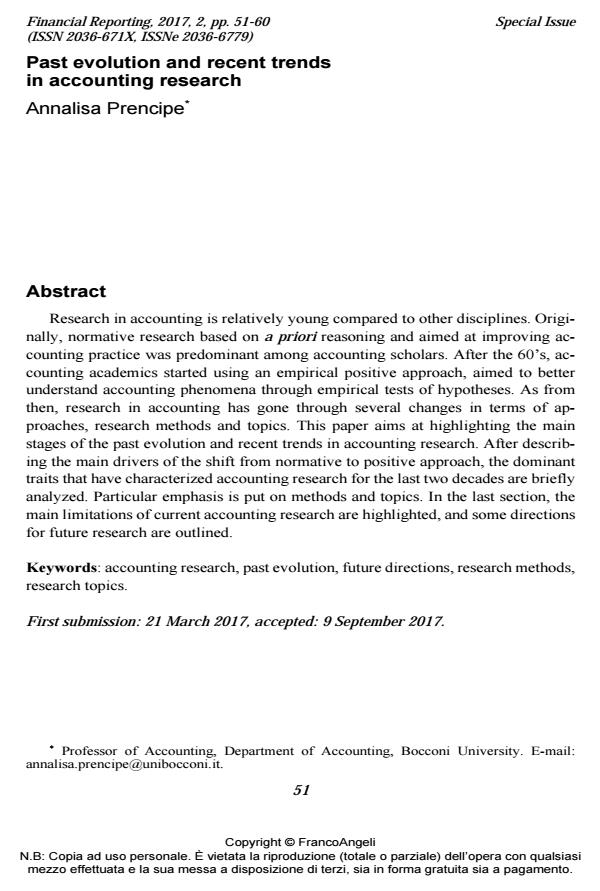Past evolution and recent trends in accounting research
Journal title FINANCIAL REPORTING
Author/s Annalisa Prencipe
Publishing Year 2017 Issue 2017/2
Language English Pages 10 P. 51-60 File size 251 KB
DOI 10.3280/FR2017-002005
DOI is like a bar code for intellectual property: to have more infomation
click here
Below, you can see the article first page
If you want to buy this article in PDF format, you can do it, following the instructions to buy download credits

FrancoAngeli is member of Publishers International Linking Association, Inc (PILA), a not-for-profit association which run the CrossRef service enabling links to and from online scholarly content.
Research in accounting is relatively young compared to other disciplines. Originally, normative research based on a priori reasoning and aimed at improving accounting practice was predominant among accounting scholars. After the 60’s, accounting academics started using an empirical positive approach, aimed to better understand accounting phenomena through empirical tests of hypotheses. As from then, research in accounting has gone through several changes in terms of approaches, research methods and topics. This paper aims at highlighting the main stages of the past evolution and recent trends in accounting research. After describing the main drivers of the shift from normative to positive approach, the dominant traits that have characterized accounting research for the last two decades are briefly analyzed. Particular emphasis is put on methods and topics. In the last section, the main limitations of current accounting research are highlighted, and some directions for future research are outlined.
Keywords: Accounting research, past evolution, future directions, research methods, research topics.
Annalisa Prencipe, Past evolution and recent trends in accounting research in "FINANCIAL REPORTING" 2/2017, pp 51-60, DOI: 10.3280/FR2017-002005